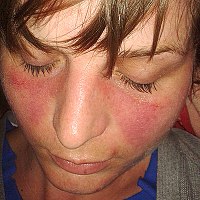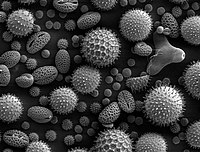
Neural correlates of reduced depressive symptoms following cognitive training for chronic traumatic brain injury
Sign Up to like & getrecommendations! Published in 2018 at "Human Brain Mapping"
DOI: 10.1002/hbm.24052
Abstract: Depression is the most frequent comorbid psychiatric condition among individuals with traumatic brain injury (TBI). Yet, little is known about changes in the brain associated with reduced depressive symptoms following rehabilitation for TBI. We identified… read more here.
Keywords: depressive symptoms; symptoms following; brain; cognitive training ... See more keywords

E040 Disease flare-ups after SARS-CoV-2 vaccination among patients with rheumatic and musculoskeletal diseases in a Rheumatology Specialized Care Center: Sri Lanka
Sign Up to like & getrecommendations! Published in 2023 at "Rheumatology"
DOI: 10.1093/rheumatology/kead104.289
Abstract: In the recent past, there has been growing research interest in COVID-19 vaccines and their impact on the disease dynamics of rheumatic and musculoskeletal diseases (RMDs). The intersection of COVID-19 and autoimmunity has led to… read more here.
Keywords: flare; rheumatology; symptoms following; flare symptoms ... See more keywords

Timing of onset of allergic symptoms following low‐dose milk and egg challenges
Sign Up to like & getrecommendations! Published in 2020 at "Pediatric Allergy and Immunology"
DOI: 10.1111/pai.13428
Abstract: Oral food challenges (OFCs) are becoming more important because of the move toward early food introduction, as well as the practice of offering low-dose OFCs to infants before starting daily ingestion of a small amount… read more here.
Keywords: low dose; onset allergic; allergic symptoms; symptoms following ... See more keywords

Learned Helplessness and Depressive Symptoms Following Myocardial Infarction
Sign Up to like & getrecommendations! Published in 2018 at "Clinical Nursing Research"
DOI: 10.1177/1054773816689752
Abstract: Psychosocial factors are known to impact depressive symptoms across clinical populations. Learned helplessness has the potential of affecting depressive symptoms following acute myocardial infarction (AMI), though little is known about this relationship. The purpose of… read more here.
Keywords: depressive symptoms; helplessness depressive; myocardial infarction; symptoms following ... See more keywords

Persistent psychotic symptoms following COVID-19 infection
Sign Up to like & getrecommendations! Published in 2020 at "BJPsych Open"
DOI: 10.1192/bjo.2020.76
Abstract: Summary To date, there have been no detailed reports of patients developing persistent psychotic symptoms following Coronavirus disease 2019 (COVID-19) infection. There have been reports of patients developing transient delirium (with and without hypoxia) after… read more here.
Keywords: following covid; infection; symptoms following; persistent psychotic ... See more keywords

Predicting Acute Changes in Depressive Symptoms Following Lumbar Decompression
Sign Up to like & getrecommendations! Published in 2022 at "International Journal of Spine Surgery"
DOI: 10.14444/8332
Abstract: Background While depressive symptoms improve for most patients following minimally invasive lumbar decompression (MIS LD), for some, symptoms may worsen. This study aimed to investigate predictors of change in depressive symptoms in the short-term postoperative… read more here.
Keywords: symptoms following; lumbar decompression; depression; changes depressive ... See more keywords

The effectiveness of cognitive behaviour therapy for reducing anxiety symptoms following traumatic brain injury: A meta-analysis and systematic review.
Sign Up to like & getrecommendations! Published in 2020 at "NeuroRehabilitation"
DOI: 10.3233/nre-201544
Abstract: BACKGROUND Anxiety is a common neuropsychological sequela following traumatic brain injury (TBI). Cognitive Behaviour Therapy (CBT) is a recommended, first-line intervention for anxiety disorders in the non-TBI clinical population, however its effectiveness after TBI remains… read more here.
Keywords: meta analysis; reducing anxiety; anxiety; anxiety symptoms ... See more keywords